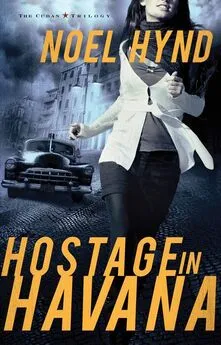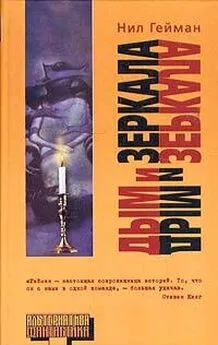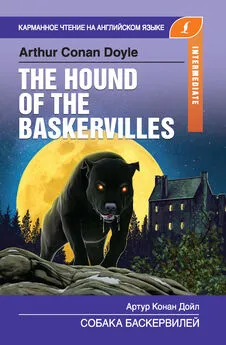Noel Hynd - Hostage in Havana
- Название:Hostage in Havana
- Автор:
- Жанр:
- Издательство:неизвестно
- Год:неизвестен
- ISBN:нет данных
- Рейтинг:
- Избранное:Добавить в избранное
-
Отзывы:
-
Ваша оценка:
Noel Hynd - Hostage in Havana краткое содержание
Hostage in Havana - читать онлайн бесплатно полную версию (весь текст целиком)
Интервал:
Закладка:
She obeyed. The guards didn’t think she needed cuffs, but Mejias did. He cuffed her hands. Beyond the doorway, two of her guards stood, watched, and smirked.
“They pull me out of bed in the middle of the night,” Mejias raged. “You’re my prisoner so I have to transport you. More trouble than you’re worth in my opinion! We should shoot you and be done with this. But this is Cuba.”
“Transport?” she asked.
“Maximum security. Middle of the island,” he said loudly and with a snarl. With a sharp yank, he tested the cuffs to make sure they were secure. They were tight. He was so rough that the sockets of her shoulders ached.
He took a blindfold out of his pocket. He wrapped it around her eyes.
“Army base in Santa Clara,” he said. “They’re going to bury you alive so deeply that no one will ever find you.”
“Is the blindfold really necessary?” she asked.
“Standard,” he said. “Ugly place you’re going to. You’ll see when you get there.”
He yanked at her arm to get her moving. She cursed back at him and he yanked harder. Then they were moving quickly down a corridor. She felt extra hands upon her, and the next thing she knew they were helping her down a short flight of steps.
“A transport van’s waiting,” he said. “Get in and keep quiet.”
They led her to a vehicle whose engine was running. There was a female with the vehicle, a guard or a soldier, Alex guessed. She could hear her voice. The driver probably. Then Alex heard a door open and she was pushed into the backseat. Someone put a manacle on her right ankle and cuffed her to the interior of the car. The doors slammed, and she heard two people jump in.
One of them, she knew by his voice, was Mejias. The other was the female. The vehicle started to move. It stopped and started. Alex guessed it was going through prison checkpoints. Then it was out onto an open road. She could tell it was accelerating, moving onto a highway, probably the one that led to Santa Clara.
Mejias and his female associate talked in hushed voices that she couldn’t hear. There was an occasional crackle of a longwave radio on the dashboard and a GPS that operated in Spanish. Every few minutes, Mejias took a call to confirm his location. The vehicle bounced as it moved along the highway. Alex managed to brush her blindfold against her shoulder so that she could develop a narrow sight line. But that gave her very little. It was an official vehicle of some sort, with boxes and crates next to her. The woman in the front seat was wearing a military uniform. That was all she could see of her: just dark hair and a shoulder with an epaulet. In front of the vehicle, all she could see was the night and the headlights along a winding highway that cut through the center of the island. Maybe it was best that she couldn’t see more, she told herself. Mejias was driving like a wild man. The vehicle hurtled forward at a mad speed. What his urgency was, Alex could only guess.
Guess, hope, and pray.
Another incoming message crackled across the two-way. Mejias answered it and signed off. Then Alex heard him speak to the woman.
“?Ahora?” he asked. Now?
“?Ahora mismo!” she said. Right now!
Something had changed. Or plans were being jerked around. All Alex knew was that the vehicle came to an abrupt halt. She heard a window come down. She peeked through her sliver of sight and saw both of Mejias’s hands on the two-way GPS.
She saw him pull it from the dashboard. She heard a clatter and guessed that he had jettisoned it. Then the car was in motion again. He ripped a vicious U-turn and from the feel of the tires, it seemed they were cutting across dirt or sand for several minutes. Then they accessed another highway or the same one in the other direction, Alex couldn’t tell which. And they were underway again.
First gear, second, third, and fourth, as fast as he could shift. It was like they weren’t driving now, more like flying low. Alex spoke out of instinct. “What are we doing?”
Cryptically, “No es lo que parece,” he answered. It’s not what it seems.
But Alex didn’t even know what it seemed like. She could only tell that the car had accelerated. The conversation between the driver and his accomplice was terse and hushed. Above the rage of the vehicle’s motor, Alex couldn’t hear anything.
The drive lasted many minutes. Eventually, Alex pushed the blindfold farther away from her eyes, so she could at least get a sense of where she was being taken. Outside, the sky was lighter. Dawn was in the offing. She wondered if it would be her last. Distantly, she recalled being warned about the military installations in Santa Clara and Camaguey. But she no longer knew where she was going. Someplace better? Someplace worse? Someplace to be incarcerated for years or hours? Or someplace to die?
The vehicle eventually turned onto what felt like a bumpy off-ramp. The boxes in the backseat slid toward her. Alex steadied herself. Next, they seemed to be on a back road, judging by the speed, then on a very bumpy narrow road, then finally what seemed like a pot-hole-ridden dirt driveway. Then the car rolled to a halt.
Both driver and shotgun rider leaped out. Alex struggled with her blindfold again, and this time she managed to push it half off. It barely mattered. The door flew open, and the woman in uniform reached in and pulled it off.
“Hurry,” the woman said in Spanish.
The other door opened, and Major Mejias reached in with both arms. He too was operating as quickly as possible. He removed the three crates from the seat next to Alex. One by one, he stacked them in a small red wagon that waited nearby. The woman pulled Alex out of the vehicle and moved her a few feet away.
“Where are we?” Alex asked, blinking against the sudden exposure to light. It was dawn and the sky was red.
“You’ll know shortly,” the woman said. Major Mejias was too busy to answer.
They were in a courtyard surrounded by walls. But Alex could hear surf. Like so much of Cuba, they were near the water. She took a reading of the light in the sky and determined where east was. There were two gates. The one behind her, behind the car, faced north. The other faced the other way, and the driveway sloped down toward it. She guessed that it led to the water and that they were, therefore, on the south shore of the island. Mejias went to the outside gate so that no one could follow them into the driveway.
“The Venezuelans took an immediate interest in you,” the woman said in Spanish. “You’re wanted by the government in Caracas. So – “
“Juanita!” Major Mejias shouted.
The woman fell silent.
“Take her inside,” he said, motioning.
Juanita, the woman in the uniform, pulled Alex by the arm. They reached a door to a small ramshackle building.
“Come along!” Juanita demanded. “You have Caracas to thank. This is better than Santa Clara!”
They reached the door and the woman pushed it open. She stepped into the building. In the dim light, two figures rose and stood to meet her.
Alex gasped as if she were receiving a visit from the dead.
Down the beach in his sniper’s lair, Perez, after days and days of waiting, finally got the high sign. He sat ready, his rifle across his lap. His cell phone rang. He answered. Perez and the caller spoke in Spanish.
“Alex is here,” the man announced. “She just entered the building. Everything is complete.”
“How many minutes?” Perez asked.
“Less than ten,” the caller said. “Watch the horizon. You’ll see a bird.”
“I’m watching it now,” said Perez. He spotted a small dot far off, maybe six miles from shore.
“Don’t miss,” the caller said. “You miss, we leave you in Cuba. You hit, and you’re on a plane to Mexico in two hours.”
“I never miss,” Perez said.
“We’ll see,” the caller said.
SIXTY-TWO
There are moments made up of too much stuff to be remembered correctly or to be assessed fully at the time they occur. For Alex, this was one. As it was, the morning had had its own peculiar madness. Events happened too quickly to fasten on any of them too firmly.
She recognized Roland Violette first. Then her eyes shifted to the other man.
“Alex! Thank God!” came the male voice. Paul rushed to her and embraced her. Juanita in the uniform was close behind with a key to the handcuffs.
“What – ?” Alex began.
“We’re going home,” Guarneri said. “Back to the U.S. That’s if our plane gets here. If the Cuban army or air force stops them we’re all shafted.”
Violette said nothing. He only twitched and stared.
Juanita worked on the handcuffs and undid them. Behind Alex, the door opened and closed again. It was Major Mejias. He had taken his cargo down to the end of the pier where it waited. Alex had to fight back her emotions. The loneliness in solitary. The suicidal thoughts. The fear. The torment. She turned toward the major.
“Sorry,” he said, placing a hand on her shoulder. “I had to be rough. We had listeners. All the way. In prison.”
“Seville,” she said.
“Figaro,” he said with a nod and an awkward tip of his cap. “This is my wife,” he said, turning to Juanita, who now smiled. “Those boxes out there are for your employers. Everything I could copy for five years, plus a lot that I didn’t have time to copy. There are papers, discs, flash drives. Defense records, police, militia security. A few personal items as well.”
“Poison. Poison,” Violette said, making no more sense than ever. He moved over to the window and peered out.
“The CIA is bringing us to Miami,” said Major Mejias. “My wife is coming with me.”
“A seaplane’s coming in,” Guarneri said. “Should be here any moment.”
“I was told you’d already gone,” Alex said. “Along with Violette.”
“Without you?” Guarneri asked. “Don’t believe everything you hear. You should know that.”
“I should have known that, yes,” she said.
“Airplane,” said Violette. “Airplane, airplane, airplane.”
They all went to the window.
“That’s our exit,” said Guarneri.
Alex watched the Cessna drop low on its approach. The plane hit the water, kicked up a wake, and began to taxi toward the pier. It was an old craft, propeller driven, but had its own beauty.
“If the plane doesn’t lift off, none of us are going,” Alex said.
“I’m going. I’m going. I’m going,” Violette said. “Back to the U.S. of A.”
She looked at him and then looked at Major Mejias. There was no question which of them was the bigger prize. And things started to come into focus.
“Let’s get to the pier,” Guarneri said. Then they all froze. From somewhere there was the sound of a loud bang. Then several more. Someone was trying to crash through the outside gates.
“Army!” said Major Mejias. “Or police!”
“We need to move,” Paul said.
Perez waited. He perched his rifle in the second-story window.
He had a clear line of sight to the small house with the Brazilian flag. He could see the commotion at the other side of the wall too, army trucks unloading soldiers, probably from Cienfuegos. But they weren’t his concern. He was used to shooting under pressure.
He lowered his eye to rifle’s sight. The rear door of the building opened, and a limping man with a hickory cane emerged. Then a woman in a police uniform came out. He waited. Then the woman emerged whom he had missed in New York. He grinned. That tiny miss a few weeks back had created all these complications. The woman, Alex LaDuca, was followed by a man. They were moving quickly, all of them, everyone except the crazy-looking old guy with the cane. Alex and the younger man were holding hands. Well, so be it. Let the lovebirds have their moment.
Читать дальшеИнтервал:
Закладка:










